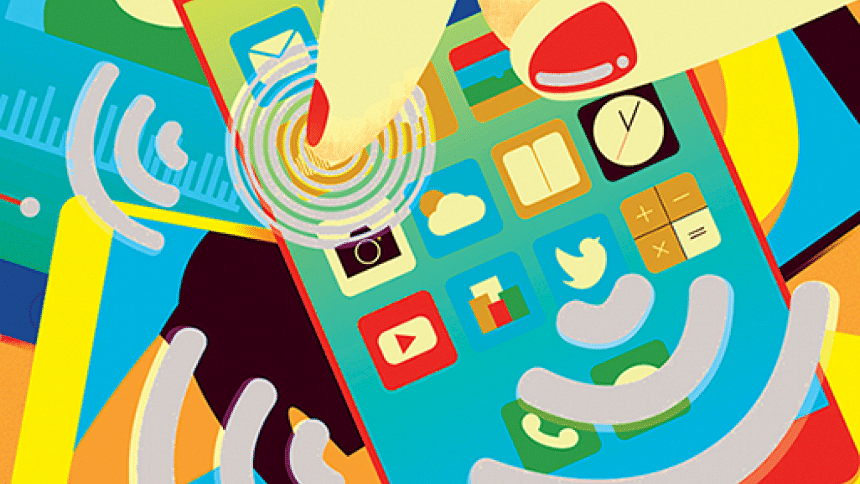Social introvert; digital extrovert

Manisha, a student of grade six says, "It is impossible to feel at ease at a dawat without my phone, I have no one to talk to here while all my friends are online."
One thing that is prevalent in Bangladeshi families, is the hiding factor. The lives young adults have on the web are fairly hidden from their older family members. So, when people are engaging in conversations with each other online, the physical barrier breaks the mental barrier people, and young individuals are able to express themselves more truly.
When talking in person to a group or an individual, words coming from someone can be distracted by the looks of the person, how they carry themselves, and their surroundings, and whether people recognise it or not — this is a big factor that separates people.
In the world wide web, it is really just two minds communicating. When people text each other, the only things you are receiving are words in a digital format, thus when people have to express their minds in person, bearing all the judgements that might be projected towards them, the inertia of reality can be super awkward.
When people are constantly communicating online with their peers, in a medium they find very comfortable, it is only natural for them to feel awkward communicating in a way that is outside their comfort zone.
This is not to justify social awkwardness, but to show that there are more than individual factors that can make socialising in the real very awkward.
Sakib, an Ordinary Level student, says, "I speak to the girl I like every day on Facebook, but I doubt I'll ever have the courage to stay cool if I talk to her in person. The guys I see around her are obviously better looking than I am."
Being digitally fluent is a lot like being fluent in more than one language. It is believed that people who speak different languages have the ability to change their personality and reasoning according to the language they speak. In the same way people are different when they communicate online compared to how they are in reality.
Basically, the displacement of comfort is what creates a socially awkward experience.
In the world of social media, the concept of 'like for like' is what drives a person's popularity. Sometimes people are nice to other people just to gain recognition. And this is hardly practiced in real life.
People put up their best pictures as their avatars, whereas in reality looking your best is highly inconsistent. Cultural factors and social stigmas create an awkward environment for people to communicate in; which does not exist in the world of the Internet.
Social awkwardness can be a thing of the past if people move away from materialistic judgements and enjoy sharing time with someone because they truly like each other.
By Sanumkia Siddiqui

 For all latest news, follow The Daily Star's Google News channel.
For all latest news, follow The Daily Star's Google News channel. 



Comments